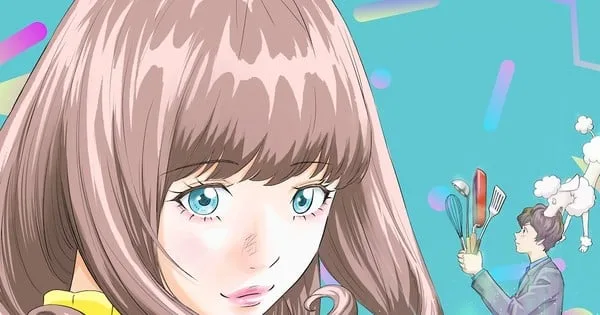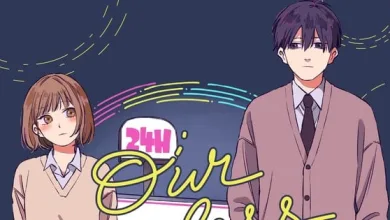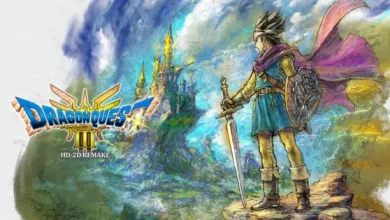Astro Note Anime Series Review – Review

If you’re an English-speaking anime or manga fan of a certain age, there’s a good chance that you got into the medium through the work of Rumiko Takahashi. Most likely it was Ranma ½ or InuYasha, but perhaps you stumbled on Urusei Yatsura or Maison Ikkoku floppies while trawling your local comic book shop, because Barnes and Noble and Borders (remember them?) didn’t yet have rows of shelves devoted to manga. Takahashi nostalgia seems to be at an all-time high now, at least in Japan, with the remake of Urusei Yatsura running for two seasons and Ranma ½ getting a remake due to come out. Astro Note, with its heavy homage to Maison Ikkoku and Urusei Yatsura, is another manifestation of that nostalgia.
Astro Note‘s first episode holds a particular charm if you’re a fan of Maison Ikkoku and Urusei Yatsura, as references abound in both story and visuals. Takumi, an out-of-work chef, wanders into the boarding house Astro-sou in search of work and falls instantly in love with the manager, a sweet young apron-clad woman named Mira Gotokuji. He agrees to take on the job of cooking breakfast for the residents, a motley crew of weirdos including a single father and his son, a moderately popular idol whose personality doesn’t match her image, and an elderly writer. He moves into room five, but on his first night he happens to overhear Mira talking to a strange man in her room, discussing her status as a widow.
Except that they’re saying “Wido,” not “widow,” which is the demonym for Widi, planet Mira’s from! And that strange man? Her dog Naosuke, who is actually another type of Wido that happens to look like a floofy poodle. Mira is the princess of Widi, and the two of them are searching for a key hidden somewhere around the Astro-sou so that they can return to their home planet, where Mira will be crowned queen. Wacky science fiction meets ensemble comedy meets heartwarming romance is a combination with great potential, and chief director Shinji Takamatsu has proven himself adept at weird genre twists with Cute High Earth Defense Club LOVE! and Fairy Ranmaru.
However, once the charms of the first episode wear off it becomes clear that the show is trying to do too much in just twelve episodes. It wants to be a wacky science fiction farce, a screwball romcom, a heartwarming ensemble sitcom, and to top it off, a food series, all in the space of a single season. It’s just too much! It careens around wildly between the genres rather than melding them together into a cohesive piece, resulting in something jumbled and half-hearted as it pulls itself in every direction.
The residents of the Astro-sou make up a charming, likable cast of supporting characters, most of whom are obviously patterned after a Maison Ikkoku resident, most of whom I desperately wish we had gotten to spend more time with. Those outside the central love polygon get their designated one episode apiece, as is expected for short-running ensemble shows. These episodes are generally strong; the two best episodes in the series were the one about Teruko, the indie idol facing where her life choices have brought her as opposed to her more popular contemporaries; and a story about Ren, a young boy who wants to try wearing skirts. With more episodes, there could have been more space devoted not just to their individual stories, but their dynamic as a group and their relationships to one another. After all, that’s where the real magic lies in stories like this.
Like the other residents, Takumi, Mira, and Shoin each have clear Maison Ikkoku counterparts, this time to the central triangle of Godai, Kyoko, and Mitaka. They’re like Takahashi’s classic characters with all the rough edges sanded off. As a result Takumi has little in the way of personality, since Godai is nothing but rough edges for much of the series; Mira is sweet and kind with none of Kyoko’s trauma or passive-aggressiveness; and Shoin is a caricature of the handsome, wealthy rival. Consequently, the love story itself fails to distinguish itself in any interesting way, with little sense of why the two like each other than that they’re a moderately attractive man and woman existing in proximity.
The comedy itself tends more toward slapstick than character-driven, a mix of recurring gags, cartoonish physical humor, and cuh-razy situations. It’s a mixed bag, and I confess to being surprised and tickled by the bizarre directions the humor takes. When the resolution to the episode’s conflict was something unexpected, it felt fun rather than something pulled out of the writing team’s collective butt. But the moment-to-moment gags had an equal chance of making me laugh and falling flat, especially with how frequently they relied on the supposed inherent humor of Takumi making weird faces. Similarly, the conclusion to the series-long plot, Mira’s search for the key to her spaceship, was anticlimactic the point that I just groaned when it was revealed.
As mixed as the story and humor were, Astro Note‘s technical merits are strong throughout. Eisaku Kubonouchi‘s designs, brought to life here by animation director Maho Aoki, are often varied and distinctive, and this is no exception… including his affinity for curly-haired male leads, a trait that Takumi shares with Carole & Tuesday‘s Roddy and Bullbuster‘s Tetsuro Okino. There’s a bit less variety in body type than we usually see from him, particularly among the main characters, but nonetheless each character is easily distinguished from the others in their features, body language, and style of dress. But it’s not just the characters – the Astro-sou itself feels warm and cozy. The soft colors, stained glass, and verdant plant life give it a vaguely art nouveau sensibility. The mechanical design, by contrast, has a retro-futurist charm.
The theme songs also deserve a special mention. “Hohoemi Note” is a delight every time I listen to it, evocative of its 70’s and 80’s influences while still standing totally on its own. The accompanying animation does a better job of blending the show’s disparate elements than the episodes themselves! “Kokoro no Kagi,” sung in-character by series leads Maaya Uchida and Sōma Saitō, isn’t as strong, perhaps because the romance is one of the weakest parts of the story, but still has a lot of its own charm.
Astro Note is yet another argument for bringing back longer anime seasons, instead of twelve episodes being the norm. When what it’s doing is working, it really works. It has the capacity to be fun, charming, and endearing, but as often as not, it just feels crammed. Perhaps if it had been twice as long, maybe more, it would feel more like a cozy homage to two of Rumiko Takahashi‘s iconic works while still capable of doing its own thing.
Source link
#Astro #Note #Anime #Series #Review #Review


